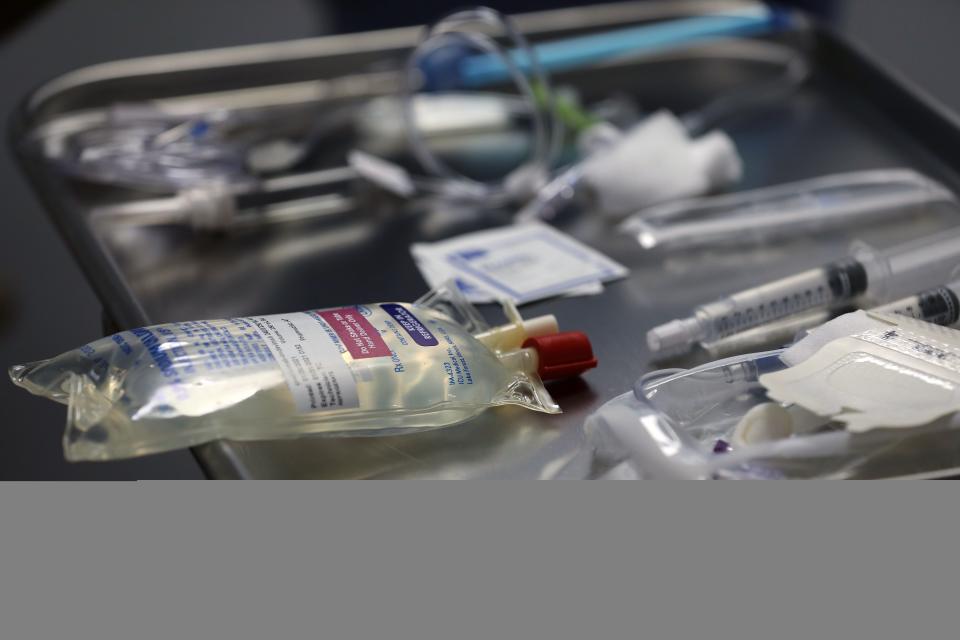Monoclonal antibody treatments are in short supply in Oklahoma as COVID-19 surges
Monoclonal antibody treatments for COVID-19 are scarce across Oklahoma as the newest surge has taken hold.
The life-saving infusions, when given in a certain time frame, can prevent the worst outcomes of COVID-19, though health experts have said they’re no replacement for vaccination. But Oklahoma doesn’t have enough of the treatments, the state’s health commissioner said.
Only one monoclonal antibody treatment — sotrovimab — is effective against the omicron variant, which has quickly become the predominant strain nationwide. In Oklahoma, the health department has said it makes up 57% of a recent sampling of cases, though the time frame the tests were performed in is unclear.
Oklahoma’s last shipment of sotrovimab this week was under 600 doses, interim Health Commissioner Keith Reed said. The state is still requesting shipments of other monoclonal antibody treatments, but those are also in short supply.
“As with other states, Oklahoma's recent allocation of monoclonal antibodies has been insufficient to assure adequate supply moving forward,” Reed said.
More: Where can I get a COVID-19 test in and around Oklahoma City?
The shortage of monoclonal antibody treatments comes as Oklahoma is recording some of its highest new case counts and surging hospitalizations. Health leaders have said omicron appears to cause milder illness than the delta variant, but severe illness is still possible, especially for people at high risk of complications.
The state is working to increase its allocations, but as it stands now, the state expects to deplete its supplies within the month, Reed said.
The Health Department was previously focused on making sure monoclonal antibody treatments were available across the state. Now, it’s targeting specific regions and asking providers to have a plan for prioritizing patients for the scarce treatments.
“We would love to be able to give [providers] as much as they needed, but it's just not available right now,” he said. “We're at the mercy of the federal government and the manufacturers — they're the ones that are really driving a supply chain.”

Health care providers aren’t trying to keep patients from accessing monoclonal antibody treatments, Dr. Dale Bratzler, OU’s chief COVID officer, said this week. They simply may not have the treatment available.
“Even if your provider wanted to give [sotrovimab] to you, because they have a good sense that most of our cases in Oklahoma are omicron, they may not be able to because they may not have it. It is in short supply,” he said.
More: Oklahoma reports more COVID-19 cases than peak of summer wave; hospitalizations surging too
The National Institutes of Health have laid out specific criteria for who should be prioritized for the scarce treatments. Immunocompromised people and those who are unvaccinated and at the highest risk for severe disease are in the first tier of prioritization.
The second tier includes unvaccinated people at risk for severe disease who aren’t otherwise included in the first tier — including people over 65 and those younger who have clinical risk factors, according to NIH.
Vaccinated people are in the third and fourth tiers, depending on their age, risk factors and whether they have received a booster dose.
People who are fully vaccinated but haven’t received a booster dose are likely at higher risk for severe disease.
The Health Department has said those who want to access the treatments should reach out to a health care provider to determine whether they're eligible.
More: Who needs a COVID-19 booster dose? Here's where you can get one in Oklahoma City
This article originally appeared on Oklahoman: Monoclonal antibody treatments for COVID-19 are scarce in Oklahoma

